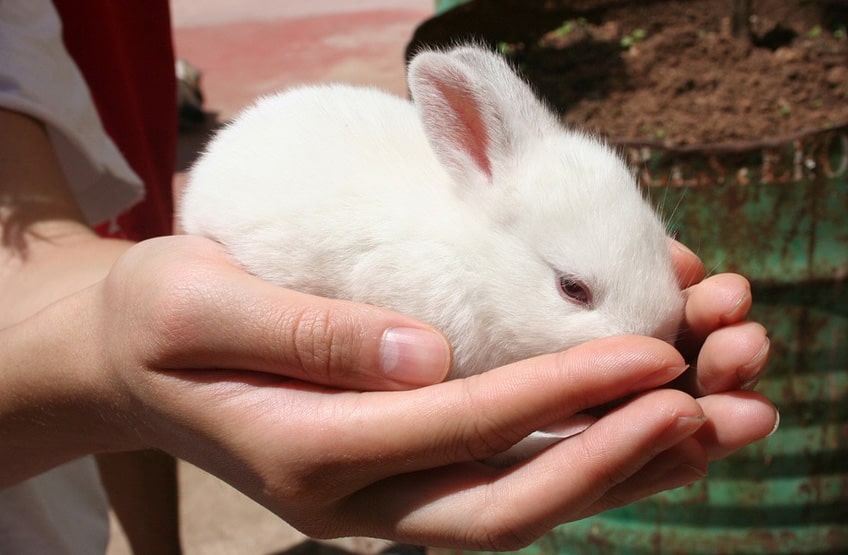
Caring for Baby Rabbits: A Comprehensive Guide
Introduction
Baby rabbits, also known as kits, are adorable and delicate creatures that require specialized care to thrive. Whether you’re a first-time rabbit owner or an experienced breeder, understanding their unique needs is crucial for their well-being. This comprehensive guide will provide you with all the essential information you need to care for baby rabbits, from birth to weaning and beyond.
Pre-Birth Care
Preparing the Nest Box:
- Provide a spacious and comfortable nest box lined with soft materials such as hay, shredded paper, or fleece.
- Ensure the box is large enough for the mother rabbit and her litter.
- Place the nest box in a quiet and secluded area of the cage or hutch.
Monitoring the Mother Rabbit:
- Observe the mother rabbit closely for signs of pregnancy, such as increased appetite, nesting behavior, and mammary gland development.
- Provide her with a balanced diet rich in hay, fresh vegetables, and pellets.
- Ensure she has access to plenty of fresh water.
Birth
Signs of Labor:
- The mother rabbit will become restless and dig at the nest box.
- She may also exhibit nesting behavior and pull fur from her body.
Assisting with Birth:
- Do not interfere with the birth process unless necessary.
- If the mother rabbit is struggling or a kit is stuck, gently assist by pulling it out by the scruff of its neck.
- Remove any stillborn kits or placentas from the nest box.
Post-Birth Care
Caring for the Kits:
- Handle the kits as little as possible to avoid disturbing the mother.
- Keep the nest box clean and dry.
- Monitor the kits daily for any signs of illness or distress.
Feeding the Kits:
- Baby rabbits nurse from their mother for the first 4-6 weeks of life.
- If the mother is unable to nurse, you can bottle-feed the kits with a kitten milk replacer.
- Feed the kits every 2-3 hours, gradually increasing the amount of milk as they grow.
Weaning
Signs of Readiness:
- The kits will start nibbling on hay and pellets around 3-4 weeks of age.
- They will also become more active and curious.
Gradual Weaning:
- Gradually reduce the frequency of bottle-feeding while increasing the amount of solid food offered.
- By 6-8 weeks of age, the kits should be fully weaned.
Socialization
Importance of Socialization:
- Baby rabbits need to be socialized with humans and other rabbits to develop healthy social skills.
Socializing with Humans:
- Handle the kits gently and regularly from a young age.
- Talk to them in a soothing voice and pet them lightly.
- Allow them to explore their surroundings under your supervision.
Socializing with Other Rabbits:
- Introduce the kits to other rabbits gradually and in a neutral environment.
- Supervise their interactions closely to prevent any aggression.
Health Care
Common Health Issues:
- Coccidiosis: A parasitic infection that can cause diarrhea and dehydration.
- Pasteurellosis: A bacterial infection that can cause respiratory problems.
- Enteritis: An inflammation of the intestines that can lead to diarrhea and vomiting.
Prevention and Treatment:
- Keep the cage or hutch clean and disinfected.
- Provide a balanced diet and plenty of fresh water.
- Vaccinate the rabbits against common diseases.
- Seek veterinary attention promptly if you notice any signs of illness.
Grooming
Importance of Grooming:
- Regular grooming helps keep baby rabbits clean and healthy.
Brushing:
- Use a soft-bristled brush to gently remove loose fur and debris.
- Brush the rabbits once or twice a week.
Bathing:
- Only bathe baby rabbits if they become extremely dirty.
- Use a mild shampoo and lukewarm water.
- Dry the rabbits thoroughly with a towel or blow dryer on a low setting.
Nail Trimming:
- Trim the rabbits’ nails regularly to prevent overgrowth.
- Use sharp nail clippers and be careful not to cut too close to the quick.
Housing
Cage or Hutch Requirements:
- The cage or hutch should be spacious enough for the rabbits to move around comfortably.
- Provide a litter box, food and water bowls, and a hiding place.
- Ensure the cage or hutch is well-ventilated and protected from extreme temperatures.
Bedding:
- Use soft and absorbent bedding materials such as hay, shredded paper, or fleece.
- Change the bedding regularly to keep it clean and dry.
Temperature and Humidity:
- Baby rabbits are sensitive to temperature changes.
- Maintain a temperature of around 65-75°F (18-24°C).
- Ensure the cage or hutch is well-ventilated to prevent excessive humidity.
Conclusion
Caring for baby rabbits is a rewarding experience that requires patience, dedication, and a deep understanding of their unique needs. By following the guidelines outlined in this comprehensive guide, you can provide your baby rabbits with the optimal care they need to thrive and develop into healthy and happy companions. Remember to seek veterinary attention promptly if you have any concerns about their health or well-being.
